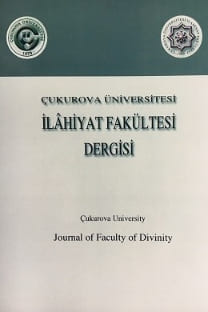Seküler Yolda Geri Adım: İslam Dünyasında Demokrasi- Sekülerizm Tartışması
Son 20-30 yıl içerisinde modernleşme, küreselleşme ve sekülerleşme gibi meta anlatıları veya küresel olguları ve onların din ile ilişkisini tartışmaktayız. Aynı zamanda modernliğin ve modern olmanın veya sekülerliğin veya seküler olmanın sadece Batı toplumlarına özgü olup olmadığını da tartışmaktayız. Ancak günümüzde çoklu modernlikler olarak bilinen daha kozmopolitan bir dünyada yaşamaktayız; bu yüzden Batı dışı modernlikler tabirinden daha çok bahsetmekteyiz. Bu bağlamda hem küresel olarak Müslümanların görüşü hem de birçok İslamcı entelektüel aktivist arasında İslamın yeniden düşünül- mesi, gerek İslamî devlet oluşumunu ve gerekse İslam ve sekülerleşme ilişki- sinin yeniden ele alınması gereğini yansıtır. Bu makalede, İslam dünyasında demokrasi-sekülerizm tartışması ele alınmakta ve bir din olarak İslamın sekü- lerleşmeyle uzlaşıp uzlaşmayacağı tartışılmaktadır.
Retreat from the Secular Path: The Democracy-Secularism Debate in the Muslim World
- In last two or three decades, we have discussed some meta-narratives or global phenomenon, for example modernization, globalization and secularization and their re- lations with religion. And we have also discussed whether modernity and becoming modern or secularity and becoming secular are equated solely with the western societies, yet we live in a more cosmopolitan world today known as multiple modernities; so we hear much talk these days of concept of non-western modernities. In this context, both Muslim opi- nion globally and the rethinking of Islam among many Isla- mic intellectual-activists reflect the current rethinking of the Islamic state formation and the relationship between Islam and secularization. In this paper, after examining the democ- racy-secularism debate in the Muslim world, whether Islam, as a religion, will compromise to secularization has been discussed.
___
- A. A. An-Naim, Islam and the Secular State: Negotiating the Future of Sharia, Cambridge 2008, p.53. A. El-Messiri, Secularism, Immanence and Deconstruction, Islam and Secularism in the Middle East, s.52. A. F. Bakti, Nurcholish Madjid and the Paramadina Foundation, IIAS Newsletter, 34, July 2004. A. Kull, Politics and Piety: Nurcholish Madjid and His Interpretation of Is- lam and Modern Indonesia, Lund Studies in History of Religions, 31, 2005, s.5. A. Sachedina, The Islamic Roots of Democratic Pluralism, New York 2001, p.17. Ali Abdürrazık, The Caliphate and the Bases of Power, J. Donahue J. Esposito (eds.), Islam in Transition: Muslim Perspectives, New York 1982, s.29-38. Al-Qaradawi, The Lawful and Prohibited in Islam, Indianapolis, 1980, s.14. Al-Qaradawi, The Lawful and Prohibited in Islam, s.86. D. Casciani, Islamic encounters of the third kind, BBC News, 21 Febru- ary 2005, http://news.bbc.co.uk/2/hi/uk_news/magazine/4283717.stm G. Barton, Peaceful Islam and Nurcholishs lasting legacy, The Jakarta Post, 6 September 2005, http://www.thejakartapost.com/news/2005/09/06/peaceful-islam- and-nurcholish039s-lastinglegacy.html J. L. Esposito - D. Mogahed, Who Speaks for Islam? What a Billion Mus- lims Really Think, New York 2007. J. L. Esposito, Islam and Secularism in the Twenty-First Century, A. Tamimi J. L. Esposito (eds.), Islam and Secularism in the Middle East, New York, 2000, s. 9 (Türkçesi: Ortadoğuda Modernleşme: İslam ve Sekülerizm, çev. G.Bayır, İstanbul, Mana Yay. 2009). J. L. Esposito, The Future of Islam, New York, 2010. Mustafa Ceriç ile mülakât, The West Does Not Want to Share its Values, Qantara.de Dialogue with the Islamic World, 6 May 2004, 2 No- vember 2006, http://www.qantara.de/webcom/show_article.php/_c-478/_nr- 105/i.html N. A. Hashemi, Inching Towards Democracy: Religion and Politics in the Muslim World, Third World Quarterly, 24 (3) 2003, s.577. N. Madjid, The True Face of Islam: Essays on Islam and Modernity in In- donesia, Ciputat 2003 (reviewed by Y. Sikand), http://www.renaissance.com.pk/SeptBore2y5.htm R. Al-Ghannouchi, Secularism in the Arab Maghreb, Islam and Secular- ism in the Middle East, s.105. T. Al-Bishri, Al-Hiwar al-islami al-ilmani, Cairo, 1996, s.12. T. Asad, Formations of the Secular: Christianity, Islam, Modernity, Stan- ford, 2003, s.6-7 (Türkçesi: Sekülerliğin Biçimleri, çev. F.B. Aydar, İstanbul, Metis Yay. 2007) Türkçesi s.17-8. T. Ramadan, Europe's Muslims Show the Way, New Perspectives Quar- terly, Winter 2005, s.29-30. T. Ramadan, Muslim Minorities in Western Europe, Georgetown Üniver- sitesinde verdiği ders, 11 Nisan 2007. W. B. Hallaq, The Origins and Evolution of Islamic Law, Cambridge 2005, s.191. Y. Al-Qaradawi, Al-Islam wa-al-almaniya wajhan li-wajh, Cairo, 1987, s.126.
- ISSN: 1303-3670
- Yayın Aralığı: Yılda 2 Sayı
- Başlangıç: 2001
- Yayıncı: -
Sayıdaki Diğer Makaleler
Kıpti Kaynaklarında İznik Konsiline Götüren Süreç ve Arius
Emanet Ahlakı- Türk Ahlak Felsefesine Giriş (Süleyman Dönmez
Ergenlik ve Gençlik Döneminde Kadına Şiddete Karşı Dinî-Ahlakî-Sosyal Bir Model Denemes
İlk Mutasavvıfların Musiki Anlayışları
Hanefî-Mâtürîdî Düşünce Akımında İsbat-ı Vâcibe ve İlahî Sıfatlara Yönelik İstidlâller
Toplumsal Cinsiyet Bağlamında Kadının Özneliği ve Din
Ebû Saîd el-Harrâz ve Üç El Yazma Eseri: Kitâbü'l-Keşf ve'l-Beyân, Kitâbü'l-Ferâğ, Kitâbü'l-Hakâik
Hapsedilme, İyileştirme ve Yeniden Suç İşleme (Şükrü BİLGİÇ)
